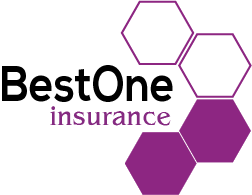Are Local Insurance Brokers Licensed and Regulated?
When it comes to choosing an insurance broker, it is crucial to ensure that they are licensed and regulated. The world of insurance can be complex and ever-changing, and having a knowledgeable and reputable professional by your side is essential. But what exactly does it mean for a local insurance broker to be licensed and regulated? Are there specific requirements they need to meet?
We will explore the importance of licensing and regulation, the specific requirements for local insurance brokers, and the regulatory guidelines that govern their practices. Understanding these aspects will help you make an informed decision and provide you with peace of mind, knowing that your insurance needs are in capable and trustworthy hands.
Importance of Licensing and Regulation
Licensing and regulation play a crucial role in ensuring the integrity and professionalism of local insurance brokers. The importance of consumer protection cannot be overstated when it comes to the insurance industry. Licensing and regulation provide a framework that safeguards consumers from fraudulent practices and unethical behavior. By requiring brokers to meet certain qualifications and adhere to specific standards, licensing ensures that they have the necessary knowledge and skills to provide reliable advice and assistance to clients.
One of the key benefits of licensing and regulation is that it helps establish trust between insurance brokers and consumers. When individuals know that a broker is licensed, they have confidence that the broker has undergone the necessary training and education to effectively navigate the complexities of insurance. This trust is essential in an industry where consumers rely on brokers to help them make informed decisions about their insurance needs.
Furthermore, licensing and regulation create a level playing field among insurance brokers. By setting minimum standards for entry into the profession, licensing ensures that all brokers meet a certain level of competency. This helps protect consumers from unqualified individuals who may not have the necessary knowledge or experience to provide adequate service.
Licensing Requirements for Local Insurance Brokers
Insurance brokers operating locally are required to fulfill specific criteria and meet certain qualifications in order to obtain their licenses. These licensing requirements ensure that local insurance brokers are knowledgeable and competent in their field, providing a level of expertise and professionalism to their clients.
Insurance broker qualifications vary depending on the jurisdiction and the type of insurance products they wish to sell. Generally, brokers are expected to complete a certain level of education, such as a bachelor’s degree in a relevant field like finance or business administration. They may also need to pass specific exams to demonstrate their understanding of insurance principles, laws, and regulations.
In addition to educational requirements, local insurance broker regulations may also require brokers to have a certain level of experience in the industry. This can be achieved through working for an insurance company or completing internships or apprenticeships under the guidance of experienced professionals.
Furthermore, licensing requirements often include a background check, ensuring that brokers have a clean criminal record and are of good character and reputation. This is important to maintain the integrity and trustworthiness of the insurance industry.
Regulatory Guidelines for Insurance Brokers
Local insurance brokers must adhere to regulatory guidelines established by governing bodies to ensure compliance with industry standards and protect the interests of their clients. These guidelines are in place to maintain the integrity of the insurance industry and ensure that brokers are qualified and competent to provide insurance services.
One important aspect of regulatory guidelines for insurance brokers is the requirement for proper qualifications. Brokers must possess the necessary knowledge, skills, and experience to effectively advise clients on insurance matters. This includes obtaining relevant certifications, such as the Chartered Insurance Broker (CIB) designation, which demonstrates a high level of expertise and professionalism in the field.
In addition to qualifications, regulatory compliance is also a key focus for insurance brokers. They must adhere to various laws and regulations that govern the insurance industry, such as consumer protection laws and data privacy regulations. This ensures that brokers operate ethically and transparently and that they prioritize the best interests of their clients.
Regulatory guidelines also cover areas such as fair and honest advertising practices, proper handling of client funds, and maintaining appropriate professional indemnity insurance coverage. By adhering to these guidelines, insurance brokers can build trust with their clients and provide them with the assurance that their interests are being protected.


